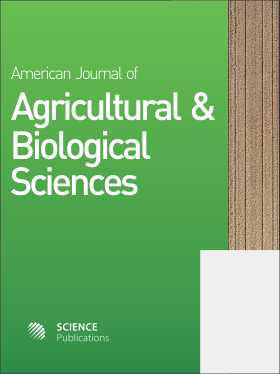An Innovative Farm Scale Biogas/Composting Facility for a Sustainable Medium Size Dairy Farm
- 1 Department of Process Engineering and Applied Science, Dalhousie University Halifax, Nova Scotia, Canada
Abstract
Approach: The amount of energy related costs as a portion of the total farm operating cost can be as high as 29% and the continuing increase of the real cost of energy related farm input has been one of the major factors impacting the cost of agricultural production. However, agricultural has the potential of replacing some of the purchased energy in the form of fossil fuels, commercial fertilizer and field production of animal feed with bioenergy and organic fertilizer from onsite renewable biomass such as animal manure in order to economically and environmentally sustain it. The aim of this study was to develop an innovative energy efficient pilot scale anaerobic digester composting facility. Methodology: A solid/liquid manure separator farm scale anaerobic digester and composting facility for a medium sized dairy farm were designed, constructed and tested. In order to make the anaerobic digestion economically viable under Canadian climatic conditions, the design, installation and operation of the system were based on advantages gained from the digester as a component of the total farm management system. In addition to the biogas production, benefits related to manure handling and storage, environmental quality improvement through odor control and water pollution reduction, fertilizer recovery and water recycling, were considered. Results: The layout of the farm was modified to provide solutions for four environmental problems related to: disposal of milkhouse wastes and overflow from the manure storage facility into the fire pond. The system possesses high energy conversion efficiency at relatively low capital cost and reduced labour requirement and has indirect energy ramifications through the production of organic fertilizer (compost) to replace expensive and energy consuming commercial fertilizer as well as the production of bioenergy (biogas) which will reduce the demand for energy. The overflow from the system (purified water) can be recycled for cleaning the barn, thereby reducing the costs of water use and manure storage facilities on one hand and eliminating pollution problems associated with manure storage and disposal on the other hand. Conclusion: The use of dairy waste as a source of energy and fertilizer resulted in a saving of 6289 kg of fertilizer at a cost of $17 925 annually and additional saving of $20 547 on energy use.
DOI: https://doi.org/10.3844/ajabssp.2012.1.16

- 6,344 Views
- 6,759 Downloads
- 3 Citations
Download
Keywords
- Anaerobic digestion
- farm scale
- solid/liquid manure separator
- temperature
- moisture content
- pH
- micronutrient
- eliminating pollution problems
- consuming commercial fertilizer
- increasing rapidly
- provide solutions
